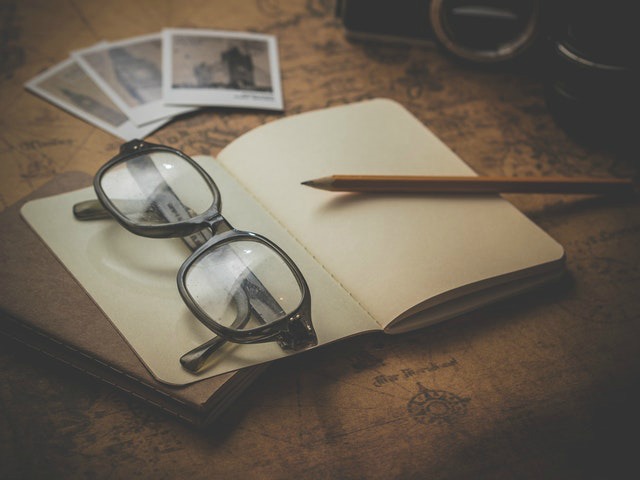Knowing Less is Knowing More
- Why 'I Don't Know' isn't always a bad phrase
How often do you feel the pressure to pretend to know the answer when you don't? Admitting those 3 nerve-racking words - "I don't know" - is more useful than you think. Sometimes, knowing less is actually knowing more...

The pressure to know everything
It feels great to know the right answer. But there are also many situations we come across daily where we frankly have no clue.
A lot of the time, it's easy to admit that we don't know. Nothing's really at stake. But it becomes more difficult to honestly admit our lack of knowledge when we are questioned by someone we'd like to impress. It may be a question posed by an employer during an interview, or a question posed by someone we admire and respect, someone who seems a lot more knowledgeable than we personally feel.
But saying the words "I don't know" isn't always such a bad thing.
Many times, what's more important than instantly knowing the answer is being able to search for it and find it.
From "I don't know" to "I'm going to find out"
Personally, I don't see a lack of knowledge as necessarily a bad thing - we all have to start from somewhere and therefore we all have to discover certain facts or learn how to do certain things for the first time. Not knowing is sometimes more valuable than knowing, because once you can admit that you don't know, it provides you with the opportunity to find out and develop yourself and others.
Depending on the situation, you may be able to twist the phrase "I don't know" and turn it into "I'm don't currently have the knowledge, but I'm eager and willing to learn how".
Should've just said I don't know
It's actually interesting to notice what occurs after saying you don't know something. Many times, (again depending on the situation), when someone asks you if you know how to do something, there are not trying to trick you or trap you. They are simply trying to assess your competency in a certain subject, and will go on to teach anyway, after receiving your response.
So, pretending that you know something when you don't can block you from a valuable opportunity to watch, learn and have the topic in question explained to you....
It would be quite sad to miss such a great learning opportunity because you gave the other person the impression that you are confident with something when you're not. Worst still, that person may then call on you to demonstrate your so-called skill.
Just admitting that you don't know takes some bravery but it can help you go from clueless to proficient.
Doesn't hurt to add to your treasure trove of knowledge
Even if you do know a little about the subject in question, sometimes it's good to sit back and listen to the other person's explanation. This is connected to a quote that I love: "When you speak, you are only repeating what you already know, but if you listen, you get the opportunity to learn something new."
It's better to admit that you could do with some more learning and development than to prematurely position yourself as a expert. Be open to continuous learning. When you are willing to sit back and listen to others, you build on what you already know and are able to enrich your knowledge by tapping into another person's perspective.
A person who is aware of their lack of knowledge will often end up more knowledgable than a person who thinks they know it all already.
The opportunity to learn rises ...
Knowing less is knowing more because it fuels a desire to find out. When you have questions about something you're interested in, you dig to find the answers. You research things for yourself and so you're even able to learn more than those who only know because they had been told by someone else. Not knowing makes you hungry for answers; that hunger can be very valuable if you act on it.
Admitting that you don't know something is also good for another reason - it prevents the spread of misleading information. We don't like being told incorrect information by those who make things up because they're scared of seeming ignorant. If you believe that incorrect information then you might spread it to others too.
Saying that you don't know something is more empowering. If you're with a group of friends and a question is asked, but no-one knows the answer, what happens?
It's quite likely that you all will get out your phones and find try to find out, or one person will do some speedy research and share the answer so you all can be enlightened. The problem has been solved on the spot. The honest admittance of not knowing the answer has lead to discovering the answer. Moreover, everyone who was involved in that conversation can now be a useful source of information for others in the future.
Saying "I don't know" makes things a lot less complicated. It can be quite powerful, especially when coupled with the determination to find those missing answers.
Summary of this post:
- Knowing less is knowing more because it makes you more humble and willing to learn from others, and build on any little bit of knowledge you do already have.
- Admitting that you don't know an answer also helps to prevent the spread of misleading information.
- It's more valuable to learn from experts than to position yourself as one if you're not quite one.
So don't feel discouraged if you don't know the answer, wanting and knowing how to get the answer is often more valuable than having it stored already.
What do you think? Is knowing less knowing more? Comment below, I'd love to hear!
Thanks for reading! If you liked this content, share with a friend:
Recent Articles
-
5 Things to Stop Doing If You Want to Feel More Fulfilled
Feb 21, 26 05:35 PM
Are you unintentionally engaging in behaviours that leave you feeling depleted and empty? Here are 5 things to stop doing if you want to feel more fulfilled. -
5 Subtle Habits That Quietly Transform Your Life Over Time
Jan 25, 26 08:21 PM
Progress towards the things that matter isn't usually loud or dramatic. Here are 5 subtle habits that quietly transform your life over time. -
Inner Work with Marcus Lynn | How to Make Change More Realistic
Jan 19, 26 06:24 PM
In this spotlight interview, therapist Marcus Lynn explains how we can begin to see emotions as information and make change more realistic in our lives.





New! Comments
Have your say about what you just read! Leave me a comment in the box below.